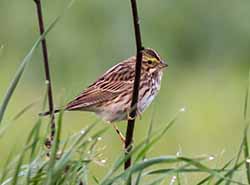
Today, agricultural regions have the largest footprint of any terrestrial ecosystem on the planet. These vast landscapes are often thought to be devoid of wildlife, but they can and should sustain diverse and abundant populations of wildlife, especially birds. As stewards of their land, farmers have the ability to engage in management practices that boost avian diversity. However, tight economic conditions and a general wariness of welcoming wildlife to farms means that many farmers do not or cannot utilize those practices. Sara Kross will highlight the complex relationships between farmers and birds using case studies from her own research on New Zealand falcons and North American songbirds and barn owls coexisting on the farms that grow wine grapes, milk, and vegetables.
Sara Kross is a conservation biologist and agroecologist and has spent more than a decade conducting research to understand the complex interactions between wildlife and people in agricultural landscapes. Sara completed her Ph.D. at the University of Canterbury in New Zealand and was a founding member of the Marlborough Falcon Conservation Trust in New Zealand. Born in New York, she moved back to the U.S. as a David H. Smith Conservation Postdoctoral Fellow in California and is now a faculty member at Columbia University, where she works with students on exciting research projects on snow geese, feral cats, ocelots, dolphins, ticks, and mountain lions.

